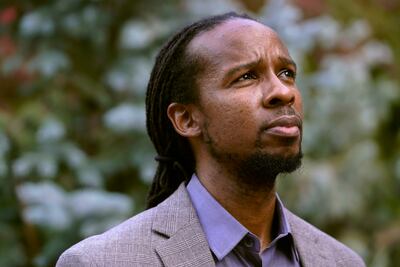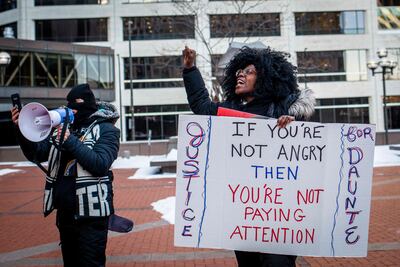The problem I described in these pages last week of Republicans across the US passing laws that limit or define the teaching of American history and racial matters didn't arise in a vacuum. Some of these politicians are pandering to the racial and cultural anxieties of conservative white voters. But they are also taking advantage of the spread of narratives, buzzwords and ideas on parts of the left that distort and damage the effort to confront and eliminate racism.
This discourse also requires significant scrutiny because it provides a plausible rationalisation for these oppressive laws and does considerable harm on its own.
Parts of the racially oriented left have adopted an analytical framework that probably does more to inflame rather than challenge and defeat racist attitudes. When "anti-racism" activist Ibram X Kendi writes that "the only remedy to past discrimination is present discrimination", he isn't winning many white Americans over.
There's a hectoring, accusatory tone that is perceived by many well-meaning white Americans as unjustly assuming that they hold racist sentiments or casually perform racist deeds. The counter-argument holds that US society is so permeated with racism that white Americans need to take ceaseless, detailed and meticulous care to not constantly perform subtle acts of racism.
That is not effective anti-racism messaging to the only meaningful target audience: most white Americans. Urging people to come together to improve society, care for each other, and right past and present injustices is a powerful appeal. But telling people, in effect, that they are bad, whether they know it or not, and they must be constantly instructed how not to be bad anymore has quite the opposite effect.
Some "anti-racism" methodology is crudely binary, almost literally Manichaean. All of reality is divided between that which is consciously, actively and primarily anti-racist as defined by this agenda, versus everything else which is, by definition and in some manner, racist.
This is absurdly reductive, effectively creating two basic categories for all social phenomena, that are really synonyms for "good" and "evil". Race, it seems, trumps everything, even stark disparities of extreme economic stratification. Class analysis is gone, or highly subordinated.
Right-wing history suppression laws and some left-wing racialised narratives both dangerously privilege purported feelings over fact, context and intention.

The new Republican laws often purport to protect (implicitly white) students from being asked to feel guilty about past and present racial discrimination. And in many controversies on campuses or other liberal-dominated structures, the perception of the supposedly aggrieved party is also made effectively the only issue, one that practically cannot be challenged.
Both exude the distinct whiff of totalitarianism. When social systems and governance are reduced to adjudicating between feelings rather than factual claims and goal-directed propositions, judgment is, by definition, arbitrary and unaccountable, and authority derives legitimacy entirely by pandering to emotions.
In any kind of classroom, that will produce a travesty of education. School teachers and, even more, university professors cannot perform their function without provoking and sometimes even disturbing their students. Yet, American culture, both left and right now frequently seeks to shield students from aspects of reality and protect their supposed sensitivities.
Even intention or context can be obliterated from the evaluation of an allegedly offensive word or deed. Some words, images or ideas are effectively deemed so toxic that to utter them in any direct way is considered not merely offensive but punishable. For example, it is now virtually impossible for anyone, with the very contingent and partial exception of some African Americans in highly limited contexts, to write or speak the highly offensive pejorative known as the "N-word".

As with many anti-racist errors, this began with an indispensable task. The term itself is uniquely noxious in American culture, and summarises centuries of the most terrible oppression and vicious hatred. It is as close to dynamite as any word in American English, and must be handled with great caution.
US society badly needed, and has developed, fairly strict conventions delineating terms for respectable use of this epithet. And such norms must be enforced. However, to virtually eliminate the word altogether quickly degenerates into travesty because of its (overwhelmingly negative but considerable) cultural and historical significance.
The absurdity this can reach is illustrated by the case of Jason Kilborn, a Chicago law school professor who has been disciplined and vilified by his own university for mentioning this pejorative in a hypothetical discrimination lawsuit, by no means an unlikely scenario. The implicit assertion is that any use of this offensive, but all-to-real, word is, by definition, abusive of some students' feelings. This infantilises students and society and forecloses rational judgment. It reduces ethics on race to a box-ticking set of established norms and performative behaviours that are practically meaningless. At this extreme, it can start to resemble a cult with its own rituals, mantras and ever-shifting but obligatory strictures.
Consider the recent heavy use of the hateful word in open court by prosecutors at the federal hate-crime trial of the men who killed Georgia jogger Ahmaud Arbery. The case hinged on their intentions, and their long history of racist pronouncements proved it was indeed a hate crime.
Even those who support a sweeping blanket prohibition on ever uttering or writing this word in any context and with any intentions would surely allow an exception for that trial. But the existence of even such an extreme exception demonstrates that context and intention are what matter most – as long as people remain willing to think. The prosecutors used a racial slur. But "how" did they use it?
When the use of any word, stripped of context and intention, can be almost entirely prohibited, thinking is inevitably constricted, serious ethical consideration grinds to a halt, important conversations are shelved, and an automatic response replaces meaningful judgment. Many important books and films cannot, in that case, be read or taught, not to mention the extremely important genres of rap and hip-hop music.
For both left and right, strictures imposing arbitrary limits on teaching and speech – and therefore thinking – are ultimately exercises in power. Right-wing anti-teaching laws are especially dangerous. But less dramatic arbitrary coercive force is also exercised on the left without the authority of the state but by significant institutions.
Either way, these quixotic cultural crusades, both left and right, are not about teaching, equity, justice or fairness. They are really exercises in social control, and therefore, formal or informal political power. That's the most toxic lesson of all.


